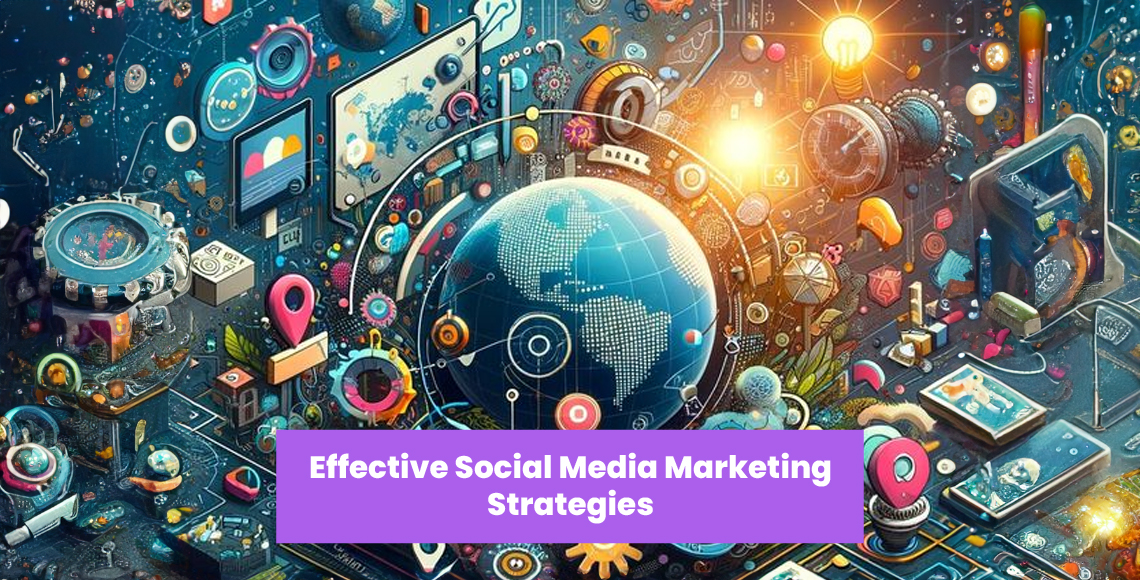Social media marketing goals for small business are many and various. As social media has become an essential part of any small business marketing strategy. It offers an opportunity to reach a wider audience, build brand awareness, and engage with customers on a more personal level.
The significance of social media marketing goals for small business will be covered in this article, along with some sample goals.
Social media marketing goals for small business
To get results, it takes more than being active on social networking networks. Setting clear social media marketing goals for small business is essential for small businesses to succeed.
Social media marketing importance for small business
Setting social media marketing goals for small business gives them focus and aids in tracking their development. It can be difficult to assess if social media activities are successful or whether changes need to be made without goals. Goals provide social media marketing with a defined direction and enable firms to concentrate their efforts on obtaining particular results.
Furthermore, setting specific social media marketing goals for small business can aid in more effective resource allocation. They may develop a more focused and efficient social media strategy with a clear grasp of their goals, which can help them save time and money.
Examples of social media marketing goals for small business
These are just a few examples of social media marketing goals for small businesses. The specific goals that you set will depend on your business’s individual needs and objectives. However, by setting SMART goals and tracking your progress, you can ensure that your social media marketing efforts are effective and that you’re achieving the results you want.
here are some examples of social media marketing goals for small businesses:
Increase brand awareness
Brand awareness is among crucial social media marketing goals for small business. By increasing brand awareness, businesses can ensure that their target audience is aware of their products or services. To achieve this goal, small businesses should focus on creating engaging and informative content that showcases their brand and values.
Increase website traffic
Social media can enhance website traffic, which can increase sales and conversions for small businesses. Small businesses can assess the effectiveness of their social media initiatives by setting a goal to boost website traffic. Small businesses should concentrate on producing valuable content for their audience that ties back to their website to accomplish this goal.
Generate leads
Generating leads is among critical social media marketing goals for small business. By capturing leads through social media, businesses can build a database of potential customers to target with their marketing efforts. To achieve this goal, small businesses should create content that encourages engagement and includes calls-to-action to drive conversions.
Increase engagement
Engagement is a crucial metric for measuring social media success. Small businesses can develop relationships with their audience and gain a devoted following by raising engagement. To achieve this goal, small businesses should focus on creating content that encourages likes, comments, and shares.
Improve customer service
Businesses can respond in real-time to client questions and complaints by using social media as a tool for customer care. Small businesses can boost their reputation and gain the audience’s trust by establishing a goal to improve customer service through social media. Small firms should make sure they swiftly react to client concerns and offer enlightening and useful responses to accomplish this goal.
Benefits of Social Media Marketing
It entails advertising a company, commodity, or service on websites like Facebook, Twitter, Instagram, and LinkedIn. Due to the social media platforms’ sizable and active user bases, which provide businesses the chance to reach a broader audience and build more intimate relationships with clients, social media has grown to be an essential component of digital marketing.
Increasing brand exposure, attracting website traffic, generating leads, and finally boosting sales and income are the main objectives of social media marketing. Due to the fact that many social media networks provide free or inexpensive choices, small companies may find it more economical to promote them.
Social media marketing entails producing material for social media sites, posting it there, interacting with followers, and managing social media ad campaigns. Social media posts should provide interesting, educational, and target audience-relevant information. This could include articles on blogs, pictures, videos, infographics, and other forms of information that promote interaction and engagement.
Engagement is a key component of social media marketing since it helps companies to establish bonds with their fans and grow a devoted following. It entails prompt replying to messages and comments, attending to client issues, and promoting likes, comments, and shares.
Social media advertising is a crucial component of social media marketing since it gives companies the chance to target particular demographics and reach a wider audience. Social media advertising enables businesses to display their adverts to people based on criteria like age, geography, interests, and behavior. This kind of advertising may be quite targeted.
One advantage of social media marketing is that it gives companies access to immediate client feedback. Platforms for social media provide statistics and insights that may be used by organizations to monitor interaction, gauge the effectiveness of their social media campaigns, and make data-driven choices to enhance their social media strategy.
So, by creating engaging content, building relationships with followers, and running targeted social media advertising campaigns, businesses can increase brand awareness, drive website traffic, generate leads, and ultimately increase sales and revenue. With the right social media marketing strategy in place, small businesses can compete with larger companies and connect with their target audience on a personal level.
Conclusion
Setting social media marketing goals is crucial for small businesses to achieve success on social media platforms. By having clear goals, businesses can create a more targeted and effective social media strategy, measure their progress, and allocate their resources more efficiently. Some examples of social media marketing goals for small business include increasing brand awareness, website traffic, leads, engagement, and improving customer service. By focusing on these goals, small businesses can harness the power of social media to achieve their marketing objectives and grow their business.
Looking to use digital marketing to advance your company? Don’t look anywhere else except Royal Vision Media!
Are you ready to expand your company? To arrange a session and find out how we can support your online success, contact us now.
Don’t miss this opportunity to use Royal Vision Media to take your company to new heights!















